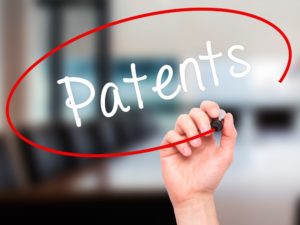
You need a patent! Or do you?

Almost every entrepreneur or startup company that approaches me with an invention starts off by telling me “I need a patent.” They are often surprised when I tell them this may not be the case.
When assessing whether there is a benefit to patenting an invention, I suggest first that the client determine the invention’s value and the benefit, commercial or otherwise, the patent will bring. In many industries having a patent is critical, while in other industries there might be a psychic benefit to a patent but as a practical and economic matter it is nothing more than an expensive framed wall covering.
To understand whether a patent will be of commercial value, it is important to understand that a patent grants the inventor the right to stop others from using the invention. It does not affirmatively grant the inventor the ability to make, use, or sell the invention. In fact, even if a company has a patent protecting a product, the product may still infringe someone else’s patent if it part of the product. In such a case the product cannot be made, used, or sold absent a license. Moreover, patent applications typically become public after 18 months. Since a patent application requires disclosure of the process of making and using the invention, the publication of a patent application can give competitors insight into the company’s technology and plans. The company’s technology can often be kept as a trade secret if the company opts not to file a patent application. Thus, if the technology is particularly challenging to reverse engineer, there may be value in keeping the technology a secret.
An inventor should recognize the challenges and limitations of getting a patent and the breadth of the protection it can provide to better assess its value. Many areas of technology are over-crowded with related and arguably duplicative patents. This not only makes it more difficult to obtain a patent, it will likely narrow the scope of protection. This can impact the commercial value of the patent and provide competitors the tools to “design around” a product to avoid infringement. Depending on competition in the particular marketplace, the effect of the scope of protection can be both positive and negative.
Once a patent has been granted, the most direct way it will provide protection is through patent litigation. This is a very costly and uncertain process. Enforcing a patent in this manner can cost hundreds of thousands to millions of dollars. Conversely, successful enforcement of a patent may result in significant monetary damages for the competitor’s past actions and license fees moving forward. In some cases, the court will issue an injunction which will limit or eliminate a competitor’s future sales. Unfortunately, due to the high cost and uncertainty of litigation, it is often difficult to assess whether spending the money to enforce a patent will ever truly be a viable option.
The ability to enforce a patent is not the only value of patent ownership. Clearly patent protection can be critical for groundbreaking inventions, for new or emerging technology fields, and in situations that improvements on existing technology represent a critical commercial step. The process of patenting an invention often informs a company of current technology and patents that can provide insight into their competitor’s goals. Further, in many early stage companies issued patents or pending applications are the gateway to attracting capital. Patents provide comfort and security to investors, and frequently lend legitimacy to the company, its products, and team.
For these reasons and more, before one starts spending substantial sums of money preparing a patent application and paying associated fees, it would be prudent to assess, with the help of patent counsel, the goals and expectations a patent would bring to the business. Is the goal to partner with or be acquired by a large company down the road? Is obtaining outside investment critical to success? Can competitors easily copy the product?
It may be the case that a company spending its limited capital on being first to market or developing a working prototype is more valuable than pursuing a patent. To file or not is frequently a complex decision. No two companies or inventions are the same. The best advice for an entrepreneur or startup company that believes he, she or it has a patentable idea is to consider the business goals and consult a patent attorney early in the process.
